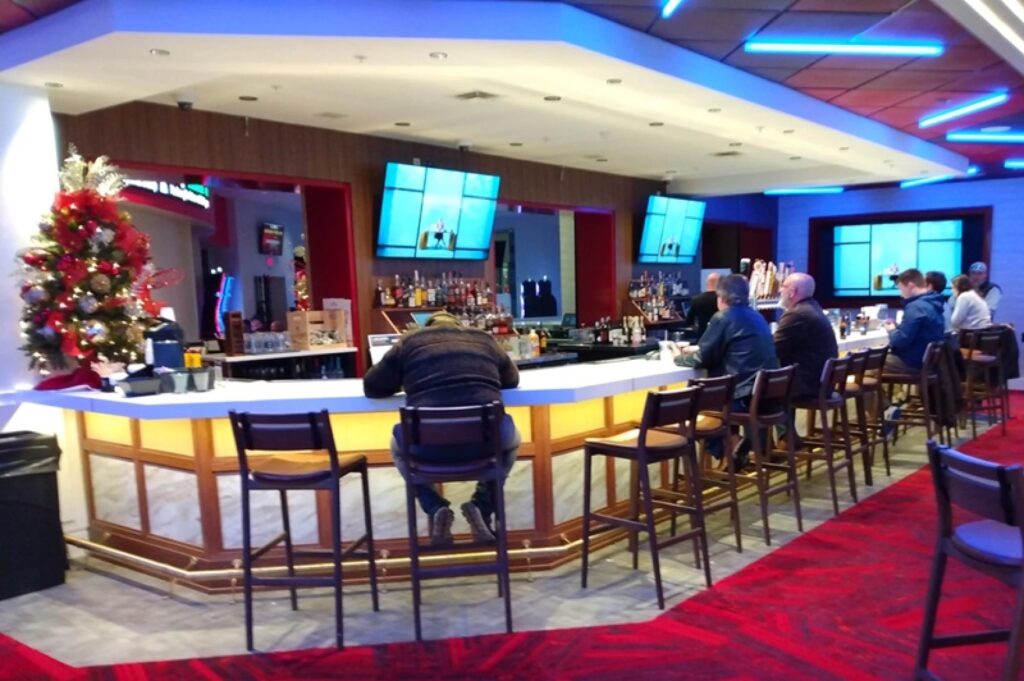On Sept. 7, in addition to slot machines and live horse racing, The Red Mile in Lexington had something new to offer: legalized gambling on sports.
Lexington’s oldest racetrack and seven other sites around the state opened sports books that day. Governor Andy Beshear placed the first legal sports bet at Churchill Downs and arrived at The Red Mile a few hours later.

“For my second sports betting ever on the day, I’d like to put $20 on the University Kentucky men’s basketball team to win the national championship.”
“Yes sir, thank you very much.”
Three weeks later, on-line sports gambling via the Internet – including phone apps – opened for business. The commonwealth’s estimated cut of the funds is around $23 million a year, but not everyone is excited about the ease of mobile sports betting.
Jason Coffey is a licensed professional clinical counselor based in Clay County.
“You can be in line at McDonald’s. And while you’re waiting, reaching your pocket, make a bet, you can be waiting at a red light, pull out your phone, make a bet, you can be watching a movie on a date. And you know, pull out your phone and make a bet.”
Colleague Melinda Garrett points to research showing what happens in a person’s brain when they place a bet.
“Gambling is so addictive, because of the amount of dopamine you know, whether you win or not just hearing the noises, placing a bet, even if you lose gives you that dopamine rush.”
State officials tout a helpline for people who believe they or someone else has a gambling problem: 1-800-GAMBLER.
“You have reached the 1-800 Gambler Helpline. Please listen carefully to the following two choices. If you or someone you know has a gambling problem and you need immediate help, press one now.”
I press 1, then identify myself as a member of the media looking to see what sort of help the helpline can provide.
“What we mainly do is let them vent if they need to talk and then we offer them resources like online resources for like Gamblers Anonymous meetings. We also send them out information to their home if they’re willing to give us their address.”
In the next couple of minutes, I’m offered information about Gamblers Anonymous meetings in Lexington and the name and number of a Lexington counselor who’s one of a handful in Kentucky specializing in sports betting problems. She also provides tips on how people can ban themselves from sports books and mobile apps.
The helpline got a lot busier after sports betting was legalized. According to the Kentucky Council on Compulsive Gambling’s last pre-sports betting report, 88 people called in August. By October, that number nearly tripled – to 243. Most of the calls weren’t about sports betting, but Coffey says he’s worried about the increase. He says studies show young males are especially at risk of becoming dependent on sports betting and 6 percent of them report losing $500 or more in a single day.
On a Saturday in the early evening, about 20 people are in The Red Mile’s sports book area.
Among them were Randy and Leera Taylor, a Lexington couple who say they they’ve visited twice and appreciate not having to drive to place a sports bet – but have not downloaded a mobile app.
“I wouldn’t let him get on because I knew we’d sit at home all day and do it and be like everybody else where you don’t leave the house. And so to come out and get out and to do it, and to actually watch your money, you don’t bet the next game or you don’t bet unless you’ve won this one, kind of keeps you grounded. You’re not spending and losing a bunch of money at once.”
Coffey and Garrett say there are reasons for optimism – to believe the state will increase resources for problem gamblers. Coffey says advertising on billboards and elsewhere should offer more than a 1-800 number.
“When I’m working with people always ask them, ‘Are you taking out extra credit cards? Are you taking a second mortgage on your home? Are you lying to your partner about your behaviors, your gambling?’”
The stakes couldn’t be higher. Coffey says of people with mental health disorders, problem gamblers are the most likely to commit suicide: the odds say one in five. I’m John McGary in Lexington.
This story is republished with permission from WEKU. Read the original.
John McGary is a Lexington native and Navy veteran with three decades of radio, television and newspaper experience. He comes to WEKU from The Woodford Sun, where he was editor while covering government meetings, reporting on community events and taking photographs. At the Sun, he won multiple awards for news and feature stories and columns. At WLEX-TV, John won a Midwest Regional Emmy for an investigative story about illegal dumping and in 2003, was named Best Television Reporter by the Kentucky Associated Press. In the Navy, he was named Print Journalist of the Year once and Navy Broadcaster of the Year twice. John’s radio experience includes news and starting a radio magazine show at NTC Guantanamo Bay, Cuba and co-hosting a morning news/talk show in Owensboro, Ky. while working for The Owensboro Messenger-Inquirer.






